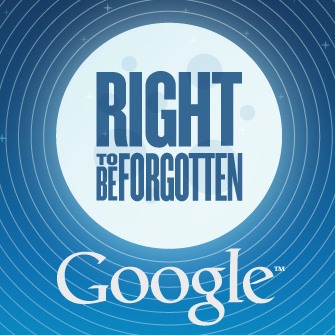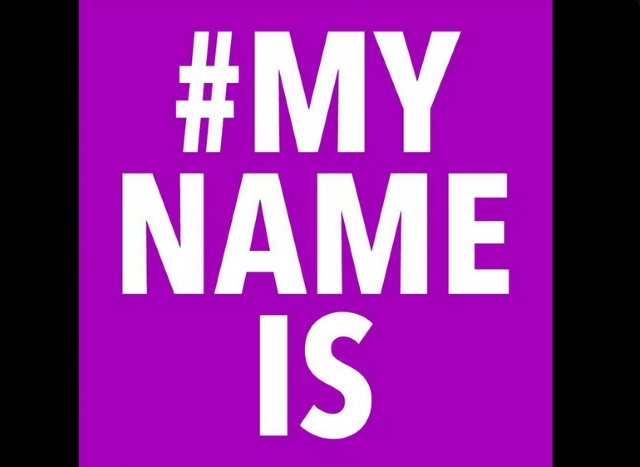
Why hackers love the holiday season [Q&A]
Recent high profile security breaches involving retailers like Target and Neiman Marcus mean that people are increasingly aware they may be vulnerable when shopping online. Yet many don't fully understand the landscape that lies behind hacking and why it’s such a lucrative business.
With Christmas and its associated e-commerce peak fast approaching we spoke to Kelly Yee, Vice President of secure email provider Penango who has a wealth of security systems experience in both the public and private sectors. Here are her views on how hackers work and how we can guard against becoming victims over the holiday season.

100,000 mostly dull photos leak online -- behind the 'Snappening' hype
After all of the recent stories related to the Fappening you could be forgiven for thinking that stories about leaks of nude photos were becoming passé.
That didn't stop the media going into overdrive at the weekend when news emerged of 100,000 (or 200,000 depending on where you read the story) images from disposable message service Snapchat being leaked online.

British criminals are remotely wiping mobile devices while in police custody
Offenders are using software to remotely wipe tablets and smartphones confiscated by the police so they cannot be used as evidence in criminal cases.
Police forces in Cambridgeshire, Derbyshire, Nottingham and Durham all admitted to the BBC that seized devices have been remotely "wiped" of all data to prevent it being used as evidence in court.

The battle to wipe out revenge porn continues
In the wake of the Fappening, online porn and nudity has been thrust into the public consciousness once again. But porn is about much more than titillating celebrity photos -- even if research shows that we're finding it easier to waste our time online when we should be getting on with work. Revenge porn is on the rise, and steps are being taken to try to thwart its progress. As the Fappening showed us, taking saucy pictures of oneself or partner is far from uncommon. This is fun and exciting in the middle of a relationship, but if that relationship should break down, there's no knowing what could happen to those pictures and videos.
Disgruntled partners may decide to get revenge on their former lovers by sharing those intimate photos and movies online, or it may be obtained by a third party and used as a tool for bribery. Many US states have outlawed the practice, and now the UK is following suit.

Is it the end of the line for the password?
In an era of increasing security threats the password is often the weakest link that allows attackers a way into a system posing as a legitimate user.
A new infographic from security company Ping Identity looks at the problem of poor passwords and how in the future they may give way to more sophisticated forms of authentication.

UK crime chief wants even more powers to snoop NSA-style
It has been said that we are living in a post-NSA world. What this really amounts to is that we are now slightly more aware of the level of snooping that has been going on in the background for many years. There has been widespread outrage at the revelations made by Edward Snowden, and there have been similar concerns raised outside of the US. In the UK, the FBI-like National Crime Agency, wants greater powers to monitor emails and phone calls -- and it wants the public to agree to this.
Director General of the NCA, Keith Bristow, spoke with the Guardian and said that the biggest threats to public safety are to be found online. He said that more powers to monitor online data is needed, and suggested that public resistance to this was down to the fact that he had thus far failed to properly explain why such powers are needed.

Microsoft signs pledge to protect student privacy
There are few companies who fail to find themselves under the privacy microscope at some point, but Microsoft is one that is the center of attention more than many. Whilst taking steps to allay fear about a keylogger in Windows 10, the company has signed the Student Privacy Pledge, joining big names from the world of education such as Follett, Learnmetrics, and Knovation. The pledge means that Microsoft will use personal information about students to help better tailor learning packages, but it won't be used for advertising, or sold to third parties.
Anthony Salcito, Microsoft's Vice President for Worldwide Education, announced the move at the Future of Privacy Forum (FPF) and the Software & Information Industry Association (SIIA) launched the pledge to help protect students.

Untwist your panties -- Windows 10's 'keylogger' is nothing to worry about
As we all know, Windows 10 Technical Preview is out there and ready for anyone with the time and inclination to try out. Much has been made of the return of the Start menu as well as the new features such as virtual desktops, but over the last couple of days the rumor grapevine has been working overtime.
The big news is that Windows 10 includes a keylogger so that Microsoft can spy on your every action, tracking your every keystroke as you enter usernames, passwords, and bank details. Well, that's not strictly true... despite what some sites would have you believe. So, what then? Windows 10 doesn't include a keylogger? It's not quite that simple.

Right to Be Forgotten hits social networks hardest [Infographic]
The "right to be forgotten" is something that was expected to take Europe by storm. A court ruling gave people the right to get in touch with search engines like Google and Bing to ask that results relating to them be removed -- assuming they are "inadequate, irrelevant or no longer relevant". One of the services that popped up after the ruling was Forget.me, making it simple to submit removal requests.
Three months down the line, we have access to the first set of figures relating to requests, and they show that social networks are the most affected type of website.

Cloud-based management allows parental control of multiple devices
As we saw last week, parental control products are a bit of a mixed bag and are only part of a protection strategy that includes effective education.
If you have several different devices in the family you may also end up using multiple products to protect them. That is unless you use the latest version of Remo Software's MORE which offers cloud-based management across multiple platforms.

In a terrifying future, Facebook could venture into healthcare
Facebook gets bashed about privacy concerns, its real name policy, and the proliferation of ads that litter the social network. It's easy to complain about who has access to your photos and status updates, but how would you feel about handing over your private health details to Zuckerberg's baby?
In a move that will strike fear into users of the social network, Facebook is apparently considering branching out into healthcare by providing what are being described as "support communities". The news comes from Reuters which quotes three sources who requested anonymity.

Facebook admits it screwed up, but its proposed research guidelines are meaningless
Facebook is no stranger to controversy, nor is the social network unfamiliar with upsetting its users. It seems as though Zuckerberg's baby has been hitting the headlines for all the wrong reasons lately, and it's not all that long since users vented their fury after it was revealed that their newsfeeds had been manipulated in the name of research. Now the social network says that it was "unprepared for the reaction the paper received when it was published and have taken to heart the comments and criticism" and is now implementing new user research guidelines.
"There are things we should have done differently" may seem like something of a half-hearted admission that mistakes were made, but it's the second semi-apology from Facebook this week. Research into how people use the social network will still continue, but Facebook now says "we want to do it in the most responsible way." So what does this actually mean?

Facebook rolls out mobile Like button to iOS and Android app developers
As any Facebook user knows, 'liking' content online has become almost second nature. Facebook has Likes, Google+ has +1s, and various other variations exist. But it is Facebook's Like button that reigns supreme -- regardless of the privacy concerns it may raise. Today Facebook is expanding its Like feature so that mobile app developers can take advantage of it. Not just content with giving web users the chance to indicate their approval of a particular Facebook post or online article, it is now possible to 'like' any piece of content within a supported app on iOS and Android.
It's a feature that is likely to be picked up very quickly by game developers, so you can expect to see notifications in the near future letting you know that your Facebook friends like level 118 of Candy Crush Saga. The feature was previewed earlier this year, but is now being made available to any developer who wants to use it. Facebook says:

NoSpyProxy wants to put your data and identity out of reach of the NSA
Since the Edward Snowden revelations that governments as well as hackers were likely to be snooping on your internet activity it's been widely assumed that there's no such thing as safe online access.
VPN specialist CyberGhost has other ideas and has been seeking funding via Indiegogo for what it calls a NoSpyProxy. The company's VPN already uses AES256 military-grade encryption to protect passwords, bank accounts and other details as well as obscuring locations and IP addresses. It now aims to make things even more secure by placing the data center hardware under the control of an additional layer of security. This will put CyberGhost in control of the whole process from login through encryption protocol, key management and finally also the server itself.

Facebook apologizes to LGBT community, 'backs down' on real name policy
Facebook has issued an apology to "drag queens, drag kings", and the LGBT community for forcing users of the social network to reveal their real names or face having their pages suspended. The social network also bowed to pressure, saying that users will not necessarily have to use their real names in the future. Chris Cox, Facebook's Chief Product Officer, made a statement in an online post that admits the negative response to the policy "took us off guard". Why the sudden interest in real names? It seems that one person may have been to blame.
Facebook caused something of a storm of controversy recently when it forced many users to reveal their real names. Large groups of people were affected by this, but it was a number of drag artists who were most vocal in their complaints -- numerous petitions and campaigns, including #MyNameIs, started up. While it was drag queens who hit the headlines, Facebook's sudden enforcement of its long-standing real names policy also affected performers such as musicians -- fans and friends were confused when seemingly new people appeared in their friend list. Despite the backlash Facebook faced, the social network stuck to its guns, remaining adamant that the policy was here to stay, and dismissing complaints out of hand.
